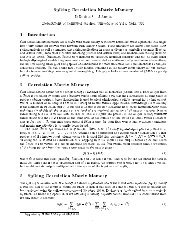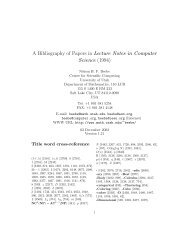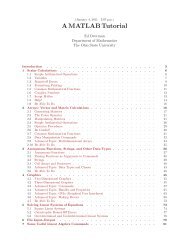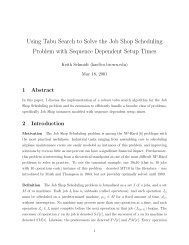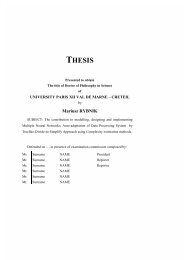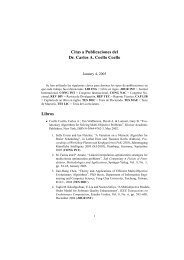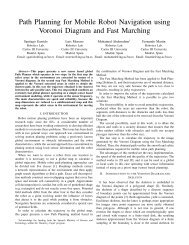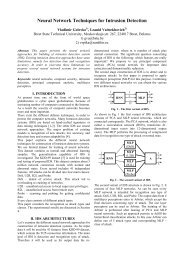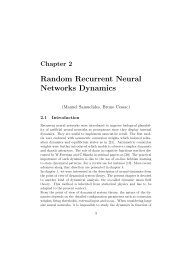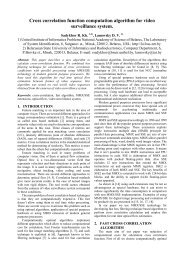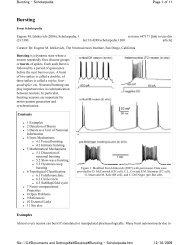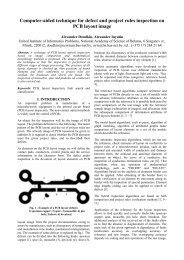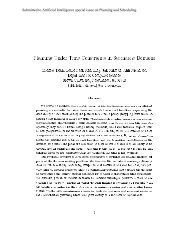NYT-1201: STATE OF THE ART A Thermostat That's Clever, Not ...
NYT-1201: STATE OF THE ART A Thermostat That's Clever, Not ...
NYT-1201: STATE OF THE ART A Thermostat That's Clever, Not ...
Create successful ePaper yourself
Turn your PDF publications into a flip-book with our unique Google optimized e-Paper software.
he 1940s, the biological metaphor has been irresis<br />
tible. The first computers — room-size behemoths —<br />
were referred to as “giant brains” or “electronic<br />
brains,” in headlines and everyday speech. As com<br />
puters improved and became capable of some tasks f<br />
amiliar to humans, like playing chess, the term us<br />
ed was “artificial intelligence.” DNA, it is said,<br />
is the original software.<br />
For the most part, the biological metaphor has lon<br />
g been just that — a simplifying analogy rather th<br />
an a blueprint for how to do computing. Engineerin<br />
g, not biology, guided the pursuit of artificial i<br />
ntelligence. As Frederick Jelinek, a pioneer in sp<br />
eech recognition, put it, “airplanes don’t flap th<br />
eir wings.”<br />
Yet the principles of biology are gaining ground a<br />
s a tool in computing. The shift in thinking resul<br />
ts from advances in neuroscience and computer scie<br />
nce, and from the prod of necessity.<br />
The physical limits of conventional computer desig<br />
ns are within sight — not today or tomorrow, but s<br />
oon enough. Nanoscale circuits cannot shrink much<br />
further. Today’s chips are power hogs, running hot<br />
, which curbs how much of a chip’s circuitry can b<br />
e used. These limits loom as demand is acceleratin<br />
g for computing capacity to make sense of a surge<br />
of new digital data from sensors, online commerce,<br />
social networks, video streams and corporate and<br />
government databases.<br />
To meet the challenge, without gobbling the world’<br />
s energy supply, a different approach will be need<br />
ed. And biology, scientists say, promises to contr<br />
ibute more than metaphors. “Every time we look at<br />
this, biology provides a clue as to how we should<br />
pursue the frontiers of computing,” said John E. K<br />
elly, the director of research at I.B.M.<br />
Dr. Kelly points to Watson, the question-answering



